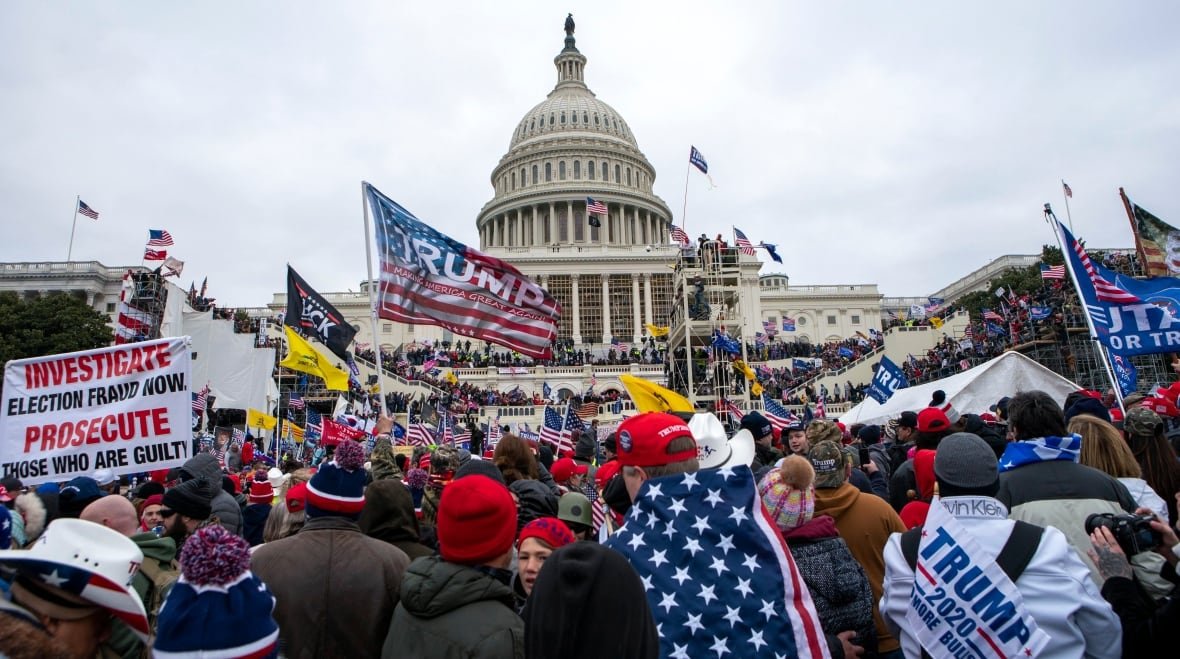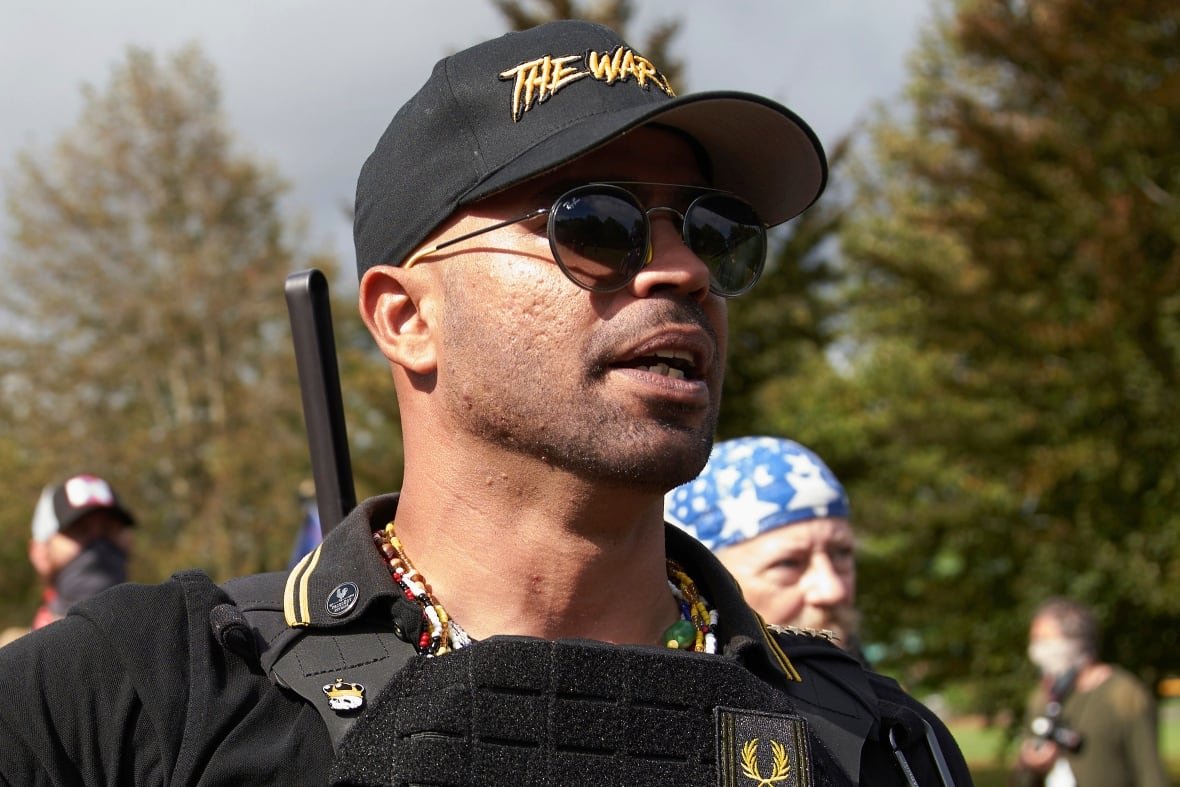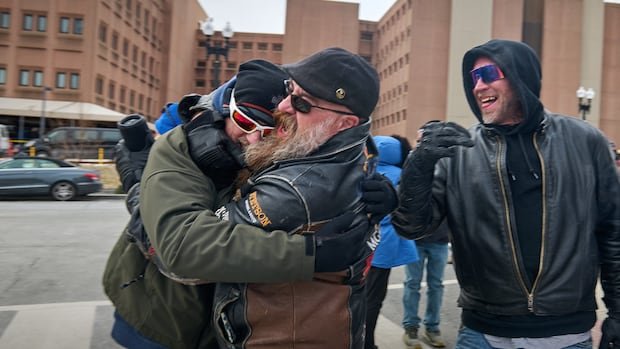Donald Trump supporters who attacked the U.S. Capitol four years ago are set to begin leaving prison on Tuesday, after the newly installed president issued a sweeping pardon that drew outrage from lawmakers who were endangered in the Jan. 6, 2021, attack.
Trump’s act effectively wipes away legal consequences for all but 14 of the nearly 1,590 people charged in the riot. The U.S. Constitution gives presidents broad pardon power and there is no legal mechanism for challenging a presidential pardon.
Trump further directed the U.S. attorney general to drop all pending cases related to the riot.
“These people have been destroyed,” the Republican president said shortly after returning to the Oval Office for the first time since the end of last year. “What they’ve done to these people is outrageous.”
Grant Tudor, a policy advocate at the advocacy group Protect Democracy, said the pardons sent the message that “if you engage in violence on behalf of the cause, Trump will protect you.”
“These pardons will license future lawbreaking, including violence,” Tudor said.
Less than 24 hours after being pardoned by U.S. President Donald Trump, some of the convicted Jan. 6 rioters were released from prison. On his first day in office, Trump pardoned roughly 1,600 offenders and commuted the sentences of more than a dozen people.
9 Oath Keepers have sentences commuted
Commutations were extended to nine members of the Oath Keepers militia and five from the Proud Boys, cutting their sentences short.
Stewart Rhodes, the former leader of the Oath Keepers who had his 18-year prison sentence on seditious conspiracy and other charges commuted, was released after midnight on Tuesday in Cumberland, Md.
Rhodes did not enter the U.S. Capitol on Jan. 6, but he was found guilty for plotting to use force against Congress to prevent the election certification. He was also accused of helping to stockpile firearms at a nearby hotel.
Oath Keepers founder Stewart Rhodes has been sentenced to 18 years in prison for his role in the Jan. 6 U.S. Capitol attack. It’s the longest penalty yet for any crime committed in the attempted insurrection. The judge said Rhodes poses an ongoing threat to American democracy.
Rhodes, who wears an eye patch after accidentally shooting himself in the face with his own gun, founded the Oath Keepers in 2009. The militia group’s members include current and retired U.S. military personnel, law enforcement officers and first responders.
A former Army paratrooper who once attended Yale Law School, Rhodes was unrepentant at his May 2023 sentencing, likening himself to Soviet Union-era dissident Aleksandr Solzhenitsyn. He will have spent just over three years in custody after his January 2022 arrest.
Several of his Oath Keepers associates have been in custody several months longer, after being arrested in 2021.
The list included Kelly Meggs, a Florida chapter leader of the Oath Keepers who received a 12-year prison term. Connie Meggs, his wife, was pardoned for her role in the Capitol attack.
Oath Keepers associates Kenneth Harrelson, Jessica Watkins and Thomas Caldwell received commutations.
Watkins, a transgender woman who, during the trial, spoke openly about the struggles she faced with her identity while serving in the military, was sentenced to 8.5 years, while Harrelson received four years. Caldwell, who was never officially a member of the Oath Keepers, was sentenced earlier this month to time served on a single count of tampering with evidence.
Oath Keepers Roberto Minuta, Edward Vallejo, Joseph Hackett and David Moerschel also had sentences of between three to four-and-a-half years in prison commuted.
Proud Boys leader gets full pardon
Thousands of Trump supporters stormed the Capitol over four years ago in an unsuccessful attempt to prevent Congress from certifying his 2020 loss to Joe Biden, as Trump spread baseless theories about 2020 election fraud rejected by his own attorney general and federal cybersecurity agency.
Their actions — following an incendiary speech by Trump — saw them tear down barricades and fight police. Roughly 140 police officers were assaulted during the attack and four people died during the chaos, including a Trump supporter that was part of a mob of people trying to break through a barricade who was shot dead by police. Four police officers who were at the scene that day died by suicide within the next seven months.
Two members of extremist group the Proud Boys were sentenced to lengthy prison terms for their what a judge called leadership roles in the Jan. 6, 2021, attack on the U.S. Capitol.
Lawmakers and Trump’s then-vice-president Mike Pence fled to safety on that day, while then-Democratic House Speaker Nancy Pelosi’s office was desecrated, with items stolen.
Pelosi called it “an outrageous insult to our justice system and the heroes who suffered physical scars and emotional trauma as they protected the Capitol, the Congress and the Constitution.”
The list of pardon recipients also includes Enrique Tarrio, the former leader of the Proud Boys, who was sentenced to 22 years for seditious conspiracy — the longest of anyone criminally charged in the riot. Tarrio was found guilty of plotting to violently oppose the transfer of power after the 2020 election.

The origins of the Proud Boys stretch back about a decade, founded by Canadian Gavin McInnes.
Tarrio, a Miami resident, led the neo-fascist group — known for street fights with left-wing activists — when Trump infamously told the Proud Boys to “stand back and stand by” during his first 2020 presidential debate with Biden.
Proud Boys members Ethan Nordean (18-year prison sentence), Joseph Biggs (17 years), Zachary Real (15 years), Dominic Pezzola (10 years) and Jeremey Bertino (3 years) were also among those receiving commutations.
Over 660 imprisoned in Capitol riot cases
More than 1,000 people pleaded guilty to federal charges, including 327 who admitted to felonies and 682 who committed misdemeanour offences. A further 221 were found guilty following a trial, according to U.S. Justice Department figures.
Some 667 defendants were sent to prison, according to the data.
Among those pardoned include David Dempsey, who, at 20 years, received one of the longest prison sentences and has been in custody since August 2021.

Sgt. Aquilino Gonell, a retired Capitol Police officer, spoke to As It Happens host Nil Kӧksal on the fourth anniversary of the Jan. 6. 2021, riots.
Dempsey stomped on police officers’ heads, swung poles at officers defending a tunnel, struck an officer in the head with a metal crutch and attacked police with pepper spray and broken pieces of furniture, prosecutors said. He was also convicted of assault at a 2019 rally.
Peter Schwartz, a Kentucky man with 38 criminal convictions since 1991, was pardoned on a 14-year sentence after he attacked police with pepper spray and a chair.

Thomas Webster, a retired New York Police Department Officer, was sentenced in 2022 to 10 years in prison for using a metal flagpole to assault an officer.
Trump also faced criminal charges over his efforts to undo his 2020 election loss, a case that sought to hold him responsible for the violence at the Capitol. The charges were dropped after he won the Nov. 5, 2024 election.
In the days following the riot, Trump was condemned by his fellow Republicans, including Mitch McConnell and Lindsey Graham, banished from prominent social media sites and impeached by the House of Representatives.
“Enough is enough,” said Graham, while McConnell said the “mob was fed lies. They were provoked by the president and other powerful people.”
Key Trump allies in recent weeks said they did not expect pardons of people who engaged in violence, including Vice-President J.D. Vance.



